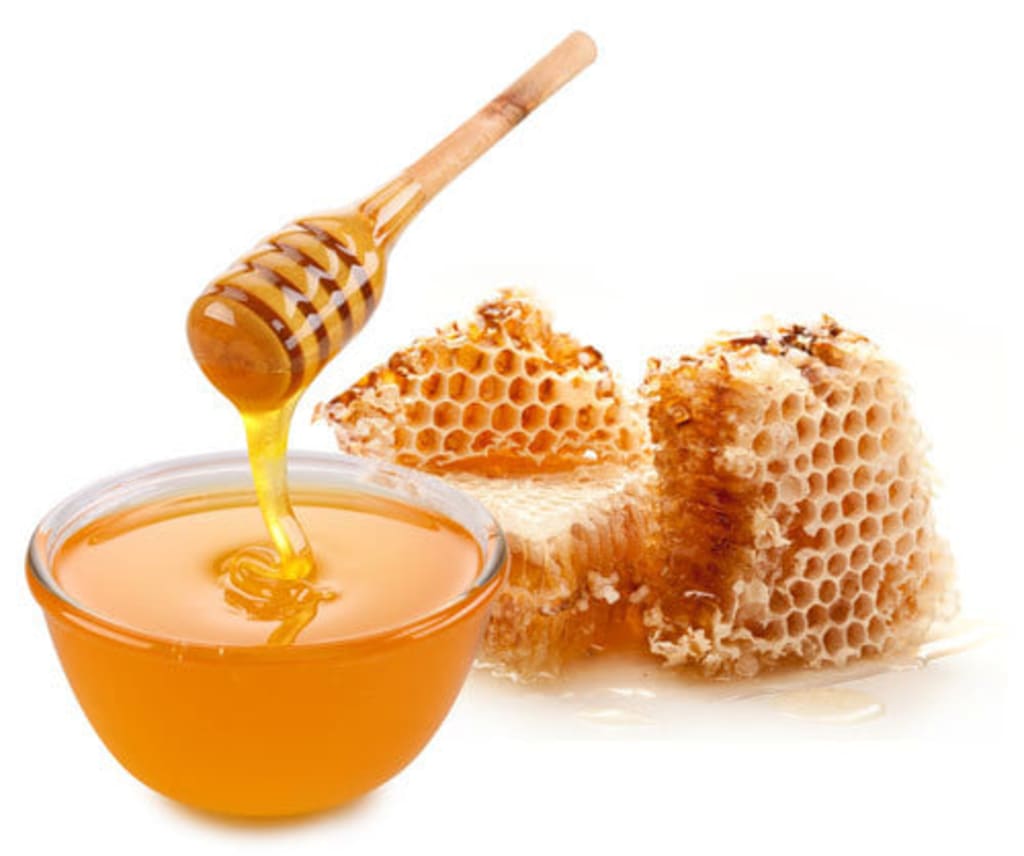a spoonful of honey in the morning: benefits and contraindications of honey
healthiest way to be fit

Of different colors, textures and tastes, depending on the type of flowers from which the pollen comes, natural honey, regardless of the assortment, has a number of active principles beneficial to health. Antioxidants, sugars, enzymes, vitamins, organic acids and more make honey a strong ally against many diseases. It is up to us to use this product correctly, so as to enhance its qualities.
What if you eat honey every day
With a lot of health properties, bee honey is undoubtedly a super food. Nutritionists and natural products specialists claim that once consumed daily, this product brings a series of changes in your body. Of course, honey must be natural, with no added sugar or water, so you need to make sure the source is safe.
It seems that if you eat a spoonful of honey every day, you will strengthen your immune system.
The reason?! This product is rich in antibacterial and antioxidant agents. Also, thanks to nutraceuticals, the body will fight against cancer or heart disease. Another easy change to notice is that you will rest better because honey contains tryptophan, a hormone that helps the body relax. Interesting, isn't it ?! So, if you have problems with insomnia, consume a tablespoon of this delicious food daily.
Your skin will be more elastic and healthier if you eat even a small amount of the miracle product. For a safe effect, wash your skin with honey every morning. Moreover, you get rid of even the extra pounds. Nutritionists claim that bee nectar increases metabolism, thus melting fat.
Honey stimulates memory
Although you would never have thought of that, well, it's as true as can be! Antioxidants contained in honey prevent cell damage. According to a study conducted in 2011, a tablespoon of honey a day stimulates memory and can even become a healthy alternative to drugs for intellectual decline that can occur after a certain age.
If you have gum problems, the solution is… honey! With a strong antimicrobial action, it can successfully fight gum disease due to an enzyme responsible for creating peroxides that eliminate bacterial plaque. It also regulates cholesterol levels. Of course, it is important to be careful with the food you usually eat, but only a tablespoon of honey a day can help you "dissolve" bad fats.
The benefits of honey, depending on when we consume it
Administered in the morning, it is a cure for the stomach.
“For the most common diseases of the stomach, ulcers and gastritis, honey has excellent therapeutic effects, in the second case being indicated the dissolution of honey in lukewarm water. "Administered in the morning, honey is a cure for the stomach. One tablespoon is recommended, one hour before breakfast ", explains the specialist.
After lunch, it regulates blood pressure.
Remember that natural honey has the effect, unlike refined sugar, of a lower increase in blood sugar levels, especially in people with type II diabetes. To satisfy their need to consume something sweet, a little raw honey can be added to water or tea. However, only the doctor can say, from case to case, how much the daily amount administered to these patients can go. Taken about two hours after lunch, honey normalizes digestion and blood pressure.
Consumed in the evening, brings sleep
Honey is also an excellent sedative of emotions and stress and a good sleeping pill. Since the Middle Ages, those suffering from insomnia have resorted to a cup of lukewarm milk over which they added honey. The explanation is that, taken before bed, honey has the ability to stabilize blood sugar levels and help release melatonin and ensure glycogen supply by morning. "Administered in the evening, honey is a real sleeping pill. One teaspoon of honey in a cup of linden or chamomile tea is enough. The preparation must be consumed one hour before bedtime ". But pay attention to the temperature of the tea in which we dissolve it, because at over 40 degrees the enzymes of honey are destroyed, which drastically reduces the therapeutic value of the product. In spring and summer, especially a teaspoon, two, three times a day, in the morning, at noon and in the evening, will make us, according to specialists, more resistant to seasonal pollen allergies. Consumed several times during the day, mixed with ginger juice and black pepper, honey also helps relieve asthma.
It is rightly said that honey is the healing food. It has proven effective in treating coughs and colds, in general, in relieving and curing some infectious or bacterial diseases of the lungs. It is an excellent treatment for sore throats, laryngitis and respiratory ailments, so common during this cold period. Honey is also beneficial in treating kidney or gastrointestinal and skin conditions.
The most important contraindication to honey is diabetes.
Exceptions: acacia honey (which contains mainly fructose) which can be given in small quantities in the morning and on wounds that are difficult to heal in diabetics (for external use). Honey is sweet because it contains over 70% carbohydrates and cannot be given in large quantities to those who have ‘sweet’ (hyperglycemic) blood.
However, this ‘sweet blood’ is so, due to an excessive glucose (dextrose) content of over 120 mg / 100 ml of blood.
Logically, if we find a honey with less dextrose and more fructose (levulose), it will be better accepted by diabetics.
Indeed, diabetics tolerate acacia honey much better, as it has a high amount of fructose.
Any other type of honey with a similar carbohydrate composition will also be accepted.
Pavlina Potschinkova, one of the best apitherapic experts in Bulgaria, wrote in her book 'Bee Products Used in Medicine,' that honey can be given to diabetics in excess of 20-30 grams per day, but only under supervision. medical.
To be on the safe side of apitherapy, 8-9 grams a day (about a teaspoon) before or after breakfast can be served, especially if diluted in fruit teas or water or sour juices, such as lemon or grapefruit juices.
There is another situation in which honey is not indicated: pollen allergy (especially that related to the digestive tract).
Honey contains over 1% pollen in the composition. People suffering from this condition cannot eat honey because the extremely low pollen content can lead to specific digestive or respiratory allergies.
Another contraindication, more important than the above is: in children under one year.
Children under one year of age have special conditions (high water and protein content, low amounts of oxygen, high pH, few antibacterial mechanisms) that may be favorable for the development of dangerous bacteria in their intestines (Botulism can occur from honey that is' courier 'of the bacterium Clostridium botulinum).
This bacterium is the most dangerous, it can be present in honey in a ‘dormant’ state, especially if the honey has not been harvested in perfect hygienic conditions.
How often do you consume honey?
If rarely or not at all, now is the right time to start.
Take care.
About the Creator
Maria Ostasevici
Communication and public relations student, Moldova
Instagram profile: maria.ostasevici;
mother of two awesome Dobermans.
BEST VERSION OF YOURSELF- THAT'S TRULY EPIC






Comments
There are no comments for this story
Be the first to respond and start the conversation.